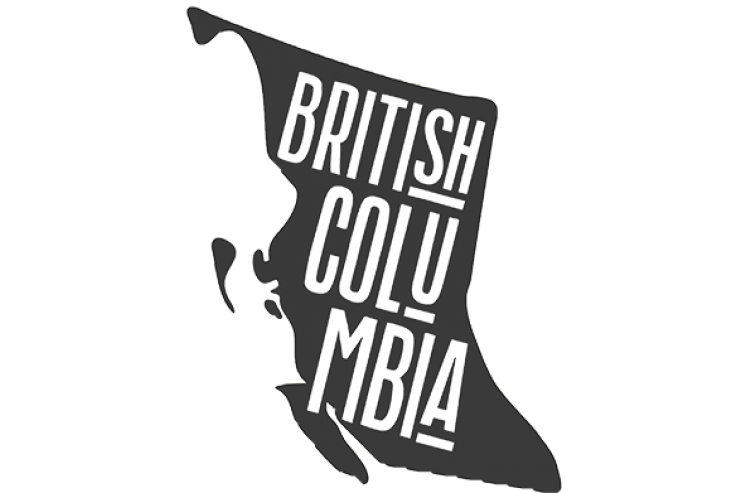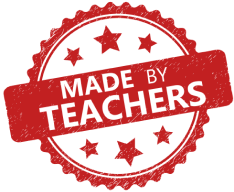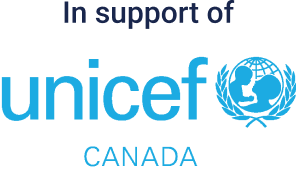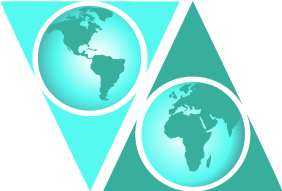British Columbia Grade 6

Made by a Grade 6 teacher in British Columbia.
Kids Boost Immunity (KBI) provides educational content (lessons and support materials) developed by teachers and where needed, health experts, that is directly linked to curriculum and is available completely for free. Each lesson is paired with an online quiz that students can take on a laptop, tablet, or phone. Every time a student scores 80% or higher on a quiz, we donate life-saving vaccines to UNICEF Canada. To learn more about KBI, click here.
Click on the overarching curriculum themes below to see the curriculum outcomes that match KBI educational content. The full Grade 6 British Columbia Curriculum Connections document is here.
- Building Critical Inquiry and Reflection Thinking Skills
-
Curricular outcomes:
English Language Arts - Big Ideas
- Questioning what we hear, read, and view contributes to our ability to be educated and engaged citizens
- Curricular Competency
- Comprehend and connect (reading listening, viewing)
- Access and integrate information and ideas from a variety of sources and from prior knowledge to build understanding
- Consider different purposes, audiences, and perspectives in exploring texts
- Apply a variety of thinking skills to gain meaning from texts
- Identify how differences in context, perspectives, and voice influence meaning in texts
Science - Curricular Competency
- Evaluating
- Suggest ways to plan and conduct an inquiry to find answers to their questions
- Identify some of the assumptions in secondary sources
- Demonstrate an understanding and appreciation of evidence
English Language Arts - Big Ideas
- Questioning what we hear, read, and view contributes to our ability to be educated and engaged citizens
Social Studies - Curricular Competency
- Use Social Studies inquiry processes and skills to- ask questions, corroborate inferences, and draw conclusions about the content and origins of a variety of sources, including mass media
- Key skills:
- Compare a range of points of view on a problem or issue
- Compare and contrast media coverage of a controversial issue (e.g., climate change, resource management)
- With peer and teacher support, determine criteria for evaluating information sources for credibility and reliability (e.g., context, authentic voice, source, objectivity, evidence, authorship)
- Apply criteria to evaluate selected sources for credibility and reliability
- Distinguish between primary sources and secondary sources
Applied Design, Skills Technologies - Core Competency - Critical Thinking and Reflective Thinking
- Questioning and investigating
- Students learn to engage in inquiry when they identify and investigate questions, challenges, key issues, or problematic situations in their studies, lives, and communities and in the media. They develop and refine questions; create and carry out plans; gather, interpret, and synthesize information and evidence; and reflect to draw reasoned conclusions.
Applicable KBI lessons:
1. Critical Thinking & Evaluating Information
- Literacy builder worksheet/answer guide
- Lesson worksheet/answers
- Video worksheet/answers
- Inquiry activities/answer guides
- Numeracy activity/answers
2. Navigating the World of Online (Mis)Information
- Literacy builder worksheet/answer guide
- Inquiry activities/answer guides
- Global Inequality
-
Curricular outcomes:
Social Studies - Content
- Global poverty and inequality issues, including class structure and gender
- Roles of individuals, governmental organizations, and NGOs, including groups representing indigenous peoples
- International cooperation and responses to global issues
- Regional and international conflict
Physical and Health Education - Content
- Practices that reduce the risk of contracting sexually transmitted infections and life-threatening communicable diseases
Applicable KBI lessons:
1. Global Inequality
- Literacy builder worksheet/answer guide
- Lesson worksheet/answers
- Video worksheet/answers
- Understanding The Body’s Defence System
-
Curricular outcomes:
Physical and Health Education - Content
- Practices that reduce the risk of contracting sexually transmitted infections and life-threatening communicable diseases
- Sources of health information
Science - Curricular Competency
- Processing and analyzing data and information
- Identify First Peoples perspectives and knowledge as sources of information
- Evaluating
- Demonstrate an understanding and appreciation of evidence
- Identify some of the social, ethical, and environmental implications of the findings from their own and others’ investigations
Applicable KBI lessons:
1. Germs, The Body's Defense System & How Vaccines Help
- Lesson worksheet/answers
- Inquiry activities
- Levels of Canadian Government & Interactions Globally
-
Curricular outcomes:
Social Studies - Content
- Different Systems of Government
- Compare characteristics of the federal government in Canada with those of one or more other countries, including:
- Roles and responsibilities of members of government (e.g., prime minister, president, governor, MP, senator)
- Components of government (House of Commons, House of Lords, senate, province, state, prefecture, canton)
- Government decision-making structures and forms of rule (e.g., monarchy, republic, dictatorship, parliamentary democracy)
- International cooperation and responses to global issues
- Economic policies and resource management, including effects on indigenous peoples
- Media technologies and coverage of current events
- Sample topics:
- ownership of media
- propaganda
- editorial bias
- sensationalism
- freedom of the press
- social media uses and abuses
- Key questions:
- How does the media influence public perception of major events?
- Are some media sources more trustworthy than others? Explain your answer.
Social Studies - Curricular Competency
- Use Social Studies inquiry processes and skills to — ask questions; gather, interpret, and analyze ideas; and communicate findings and decisions
- Locate and map continents, oceans, and seas using simple grids, scales, and legends
- Locate the prime meridian, equator, Tropic of Cancer, Tropic of Capricorn, Arctic Circle, and Antarctic Circle on a globe or map of the world
- Apply criteria to evaluate selected sources for credibility and reliability
Physical and Health Education - Big Ideas
- Learning about similarities and differences in individuals and groups influences community health
Applicable KBI lessons:
1. Canada's Three Levels of Government
- Literacy builder worksheet/answer guide
- Lesson worksheet/answers
- Video worksheet/answers
- Numeracy activity
- Inquiry activities
2. Canada's Interactions with the Global Community
- Literacy builder worksheet/answer guide
- Lesson worksheet/answers
- Video worksheet/answers
- Numeracy activity
- Inquiry activities
- Different Systems of Government
- Social and Emotional Learning
-
Curricular outcomes:
Core Competencies - Personal and Social
- Social Awareness and Responsibility
- People who are socially aware and responsible contribute to the well-being of their social and physical environments
Applicable KBI lessons:
1. Social and Emotional Learning
Curriculum-Related Themes Throughout the Year
- Supporting Students During School Vaccination
-
Curricular outcomes:
Physical and Health Education - Content
- Practices that reduce the risk of contracting sexually transmitted infections and life-threatening communicable diseases
Applicable KBI lessons:
1. How to Handle Your Shots Like a Champ
- Remembrance/Veterans/Memorial Day (November)
-
Curricular outcomes:
Social Studies - Content
- Roles of individuals, governmental organizations, and NGOs, including groups representing indigenous peoples
- Regional and international conflict
- International cooperation and responses to global issues
- epidemic/pandemic response
Science - Curricular Competency
- Processing and analyzing information
- Identify First Peoples perspectives and knowledge as sources of information
- Identify some of the social, ethical, and environmental implications of the findings from their own and others’ investigations
Physical and Health Education (PHE) - Big Ideas
- We experience many changes in our lives that influence how we see ourselves and others.
Applicable KBI lessons:
1. Remembrance Day / Veterans Day / Armistice Day
- Building Leadership Skills To Help Others (December)
-
Curricular outcomes:
Core Competency - Personal and Social
- Social Awareness and Responsibility
- People who are socially aware and responsible contribute to the well-being of their social and physical environments.
Physical and Health Education - Big Ideas
- We experience many changes in our lives that influence how we see ourselves and others.
Applicable KBI lessons:
1. Winter Break - A Time To Reflect on Making a Difference
- Literacy builder worksheet/answer guide
- Inquiry/creative activities
- Black History & Refugee Experiences (February)
-
Curricular outcomes:
Social Studies - Content
- Roles of individuals, governmental organizations, and NGOs, including groups representing indigenous peoples
- Global poverty and inequality issues, including class structure and gender
- The urbanization and migration of people
Social Studies - Curricular Competency
- Construct arguments defending the significance of individuals/groups, places, events, or developments (significance)
- Sequence objects, images, or events, and recognize the positive and negative aspects of continuities and changes in the past and present (continuity and change)
- Make ethical judgments about events, decisions, or actions that consider the conditions of a particular time and place, and assess appropriate ways to respond
Physical and Health Education - Big Ideas
- We experience many changes in our lives that influence how we see ourselves and others.
- Learning about similarities and differences in individuals and groups influences community health
Applicable KBI lessons:
1. Black History Month
2, Refugee Experiences
- Lesson worksheet/answers
- Inquiry activities
- Celebrating Inspiring Women in STEM (March)
-
Curricular outcomes:
Core Competencies - Personal and Social
- Valuing Diversity
- Students value diversity, defend human rights, advocate for issues, and interact ethically with others. They are inclusive in their language and behaviour and recognize that everyone has something to contribute. Their approach to inclusive relationships exemplifies commitment to developing positive communities.
Social Studies - Content
- Roles of individuals, governmental organizations, and NGOs, including groups representing indigenous Peoples
- Global poverty and inequality issues, including class structure and gender
- Economic policies and resource management, including effects on indigenous peoples
- International cooperation and responses to global issues
Science - Content
- Extreme environments including contributions of Canadians to exploration technologies (e.g., Canadarm, Newt Suit, VENUS and NEPTUNE programs)
Applicable KBI lessons:
1. International Women's Day - Celebrating Inspiring Women in STEM
- Literacy builder worksheets/answer guides
- Inquiry activities
- Valuing Diversity
- Caring For the Environment (April - Earth Month)
-
Curricular outcomes:
Core Competencies - Social Awareness and Responsibility
- Contributing to the community and caring for the environment
- Students develop awareness of and take responsibility for their social, physical, and natural environments by working independently and collaboratively for the benefit of others, communities, and the environment. They are aware of the impact of their decisions, actions, and footprint. They advocate for and act to bring about positive change.
Applicable KBI lessons:
1. Environment & Climate Change
- Literacy builder worksheets/answer guides
- Lesson worksheet/answers
- Video worksheet/answers
- Inquiry activities
- Contributing to the community and caring for the environment
- Preventing The Spread of Infectious Diseases - Immunization Awareness Week (April)
-
Curricular outcomes:
Physical and Health Education - Content
- Practices that reduce the risk of contracting sexually transmitted infections and life-threatening communicable diseases
Social Studies - Content
- International cooperation and responses to global issues
- epidemic/pandemic response
- Sources of health information
Applicable KBI lessons:
1. Immunization Awareness Week
2. The Spread of Infectious Diseases




